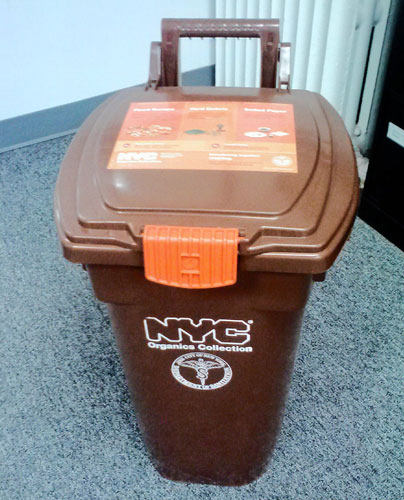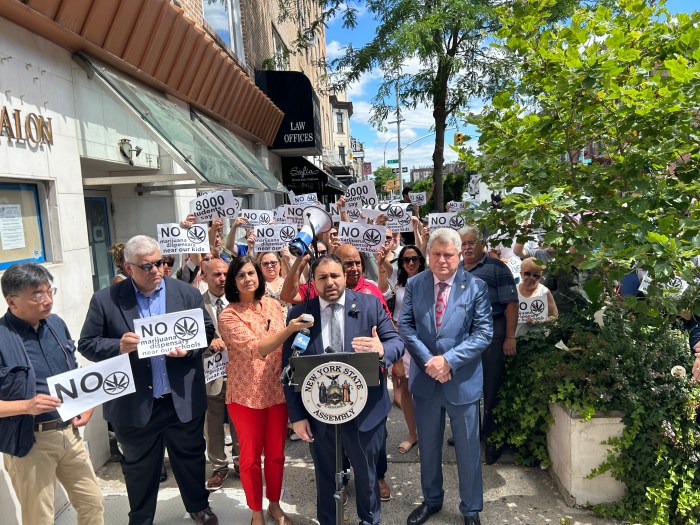The city wants your table scraps.
Bay Ridge will be the next laboratory for the city’s new food-waste recycling program — which the Department of Sanitation says will mean less trash and more cash.
Starting in April, all single family houses and rental buildings of nine or fewer units between 74th and 101st streets and from Shore Road to Seventh Avenue will get brown 13- or 21-gallon bins for their food waste — and Ridgites will be asked to separate their kitchen scraps just like they do with recyclables.
Sorting out leftovers — as well as food-stained paper plates, napkins, coffee filters, and tea bags — along with existing plastic and metal recycling measures, will mean almost no actual trash to drag to the curb, according to Deputy Sanitation Commissioner Ron Gonen.
“You’re not going to have that much refuse left, and that’s our goal,” Gonen told Community Board 10 on Jan. 13.
It’s an early phase in a plan that Gonen says will slash the amount of trash the city pays to bury in out-of-state landfills, saving $85 million a year.
“We’re linking up the environmental movement with economic development,” Gonen said.
The city will transport the putrefying table scraps by train, truck, or barge either to a processing facility upstate, or to an experimental digester on the Newtown Creek. The upstate facility will take the waste for free and convert it to compost to sell to farmers. The Newtown Creek facility will let the moldy victuals decompose in sealed chambers and capture burnable natural gas — which the city hopes one day to convert into fuel for Sanitation trucks. The evnetual objective is to have all the rotting fodder processed into gas inside the city’s metro area, saving even more money.
The 18-month Ridge pilot program currently calls for private houses to get 13-gallon bins to wheel out to the curb once a week. Apartment buildings of up to nine units will receive three or four 21-gallon bins — plus a small kitchen collector for each individual houshold, so that tenants can load up their old food and dump it in the larger containers. Residents can request more and larger bins for free, and buildings of 10 or more units can ask the city consider adding them to the program.
A bin full of moldy food might seem like a rat magnet in the making, but Gonen assured CB10 that the carriers are heavy-duty, with latching, animal-proof lids.
“Nothing’s getting into this thing,” Gonen assured the board.
The city will launch a mailer and doorhanger campaign in the next few months to raise awareness about the experiment. The program is entirely voluntary, and there are no penalties for not participating. But Sanitation selected Bay Ridge as a testing ground because of the neighborhood’s high rate of household recycling.
“Government is usually risk-averse, they want to go slowly, go where it’s likely to work,” said Gonen.
The board backed the plan, but requested two things — that the city include the entire area the panel represents, spanning from 62nd Street to 101st Street, and Shore Road to 14th Avenue, and that the bins get picked up twice weekly. The board was especially concerned about the potential for unpleasant odors in the warmer months if Sanitation only comes by once a week.
“It’s not going to be pretty in August,” said panel member Doris Cruz.






















